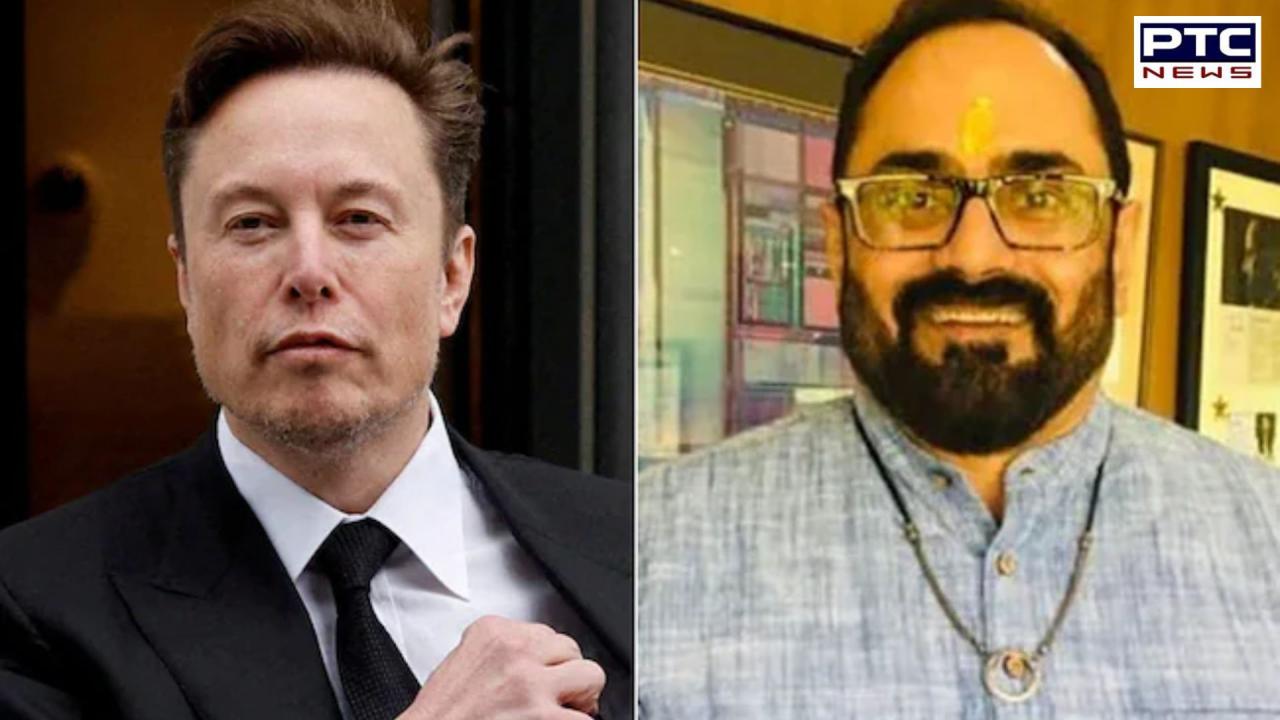- March 31, 2025
- Updated 2:22 am
Elon Musk raises concerns about EVM manipulation; BJP leader responds
PTC News Desk: Elon Musk, the CEO of SpaceX and Tesla, has cautioned against using electronic voting machines (EVMs), citing worries about potential hacking vulnerabilities. His comments coincide with escalating global discussions over the security of electronic voting machines (EVMs), particularly in light of claims of anomalies in the most recent primary elections in Puerto Rico.
“Electronic voting devices ought to be banned. Even with the miniscule chance of being hacked by AI or humans, the risk is still too great, Mr. Musk said on X.
We should eliminate electronic voting machines. The risk of being hacked by humans or AI, while small, is still too high. https://t.co/PHzJsoXpLh
— Elon Musk (@elonmusk) June 15, 2024
Because of the current incidents in Puerto Rico, there is a greater focus on EVM security. There were multiple anomalies connected to electronic voting machines during the primary elections. Nonetheless, election authorities were able to detect and adjust vote tallies thanks to a paper trail.
Mr. Musk’s statement was a reaction to a post made by Robert F. Kennedy Jr., an independent candidate for the US Senate in 2024 and the nephew of former US President John F. Kennedy, who stated, “The Associated Press reports that hundreds of voting irregularities involving electronic voting machines occurred in Puerto Rico’s primary elections.” Fortunately, a paper trail allowed for the identification of the issue and the correction of the vote tallies. In jurisdictions where there is no paper trail, what happens?
Kennedy Jr. argued in favor of switching back to paper ballots in order to guard against electronic meddling in elections and guarantee that each and every vote is counted securely.
While worries about EVMs are becoming more widespread in the US, the situation in India paints a different picture. India employs M3 EVMs, or third generation electronic voting machines, which are meant to be impervious to tampering. If any tampering attempts are detected, these machines enter a “Safety Mode” and become unusable.
In response to Mr. Musk’s statement, former Union Minister Rajeev Chandrasekhar called it a “huge sweeping generalisation” that is untrue.
“Building safe digital hardware is impossible, according to this broad generalization. False, the former minister retorted. “There is no way in; there is no connectivity, Bluetooth, wifi, or Internet. controllers that are preprogrammed and cannot be changed by the user. It is possible to design and construct electronic voting machines precisely like India has. Elon, we would be pleased to do a tutorial.”
This is a huge sweeping generalization statement that implies no one can build secure digital hardware. Wrong. @elonmusk ‘s view may apply to US n other places – where they use regular compute platforms to build Internet connected Voting machines.
But Indian EVMs are custom… https://t.co/GiaCqU1n7O
— Rajeev Chandrasekhar ???????? (@RajeevRC_X) June 16, 2024
“Everything is hackable,” Mr. Musk retorted.
For the most recent updates to Indian EVMs, a committed group of professors from three prominent Indian Institutes of Technology (IITs) has been crucial. An esteemed Technical Expert Committee (TEC) on EVMs supports the Election Commission of India (ECI), guaranteeing the devices’ security and resilience.
Microelectronics and solid-state electronics expert Professor Dinesh K. Sharma of IIT Bombay said that “Indian EVMs are different from other EVMs in the world.” There isn’t even a mains power supply hookup for the M3 EVMs.
This year, the cross-verification of votes cast on electronic voting machines (EVMs) using paper slips produced by voter-verified paper audit trail (VVPAT) machines was a topic that the Supreme Court addressed. Petitions seeking 100% cross-verification were denied by a court of Justices Sanjiv Khanna and Dipankar Datta, upholding the current procedure of validating five EVMs chosen at random for each Assembly constituency.
Nonetheless, the Election Commission received two orders from the court. First, the symbol loading unit needs to be sealed and kept in containers that are signed by the candidates and their representatives once symbols have been put into an EVM. Second, following the results announcement, these sealed containers and the EVMs need to be kept in storerooms for a minimum of 45 days.
Also Read: Fathers Day 2024 : Varun Dhawan shares 1st pic of newborn daughter on special day
Recent Posts
- Crown of goddess Kali, gifted by PM Modi, stolen from temple in Bangladesh
- Hezbollah leader survives assassination attempt amid Israeli strikes that kill 22 in Beirut
- ਕ੍ਰਿਕਟ ਦੇ ਬਦਲੇ ਨਿਯਮ, ਹੁਣ ਇਸ ਕੇਸ ‘ਚ ਦੁਬਾਰਾ ਨਹੀਂ ਮਿਲੇਗੀ ਬੈਟਿੰਗ, ਮੰਨਿਆ ਜਾਵੇਗਾ
- ਸਚਿਨ ਤੇਂਦੁਲਕਰ ਦੇ ਬਰਾਬਰ ਪਹੁੰਚੇ ਜੋ ਰੂਟ, ਪਰ ਵਿਰਾਟ ਦੇ ਇਸ ਰਿਕਾਰਡ ਤੋਂ ਅਜੇ ਵੀ ਦੂਰ
- Ratan tata death: ਸਿਰਫ ਵੋਲਟਾਸ ਹੀ ਨਹੀਂ, ਸਵੇਰ ਤੋਂ ਰਾਤ ਤੱਕ ਤੁਹਾਡਾ ਕੰਮ ਟਾਟਾ ਦੇ ਬਿਨਾਂ ਨਹੀਂ ਚੱਲ ਸਕਦਾ
